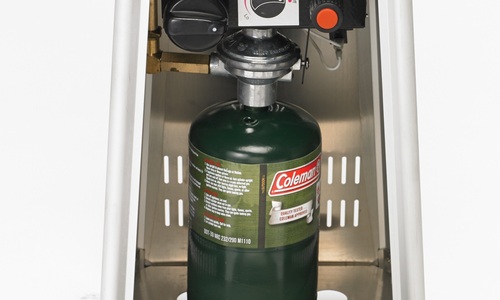Approximately a 5-minute read
|
When it comes to heating your home, especially in regions with harsh winters, the choice between gas and electric heating systems can make a significant difference. Electric heaters are typically more budget-friendly, easier to install, and don’t require the ventilation setup that gas heaters do. On the other hand, gas heaters tend to have lower operational costs since natural gas is often cheaper than electricity. They also excel at maintaining warmth in larger spaces. Both options are widely used across the globe and offer unique advantages depending on your needs.
There are primarily two types of electric heaters:
Radiation heaters – These heaters contain a heating element enclosed in a glass envelope, generating heat in the form of infrared radiation. A reflector directs the heat away from the heater, allowing the radiant heat to travel through the air until it reaches an object or surface. Radiation heaters, also known as infrared heaters, are ideal for spot heating. For instance, you might find one of these heaters in a small office or study area.
Convection heaters – These work by warming the air around them through convection. Once the air heats up, it rises, and cooler air moves in to replace it, initiating the heating cycle once again. Convection heaters provide a steady stream of warm air and are best suited for enclosed spaces. Two common types of convection heaters include ceramic heaters and oil-filled heaters.
Gas heating systems come in two main varieties:
Flued heaters – These heaters are permanently installed and require professional installation at the correct height to ensure proper extraction of emitted gases. This makes them more complex to set up but ensures safety and efficiency.
Non-flued heaters – Also referred to as vent-free or flueless heaters, these units can be used in rooms provided there’s adequate ventilation. However, they must be used with caution to avoid potential health risks associated with carbon monoxide buildup.
Installing a gas heater or furnace involves setting up ventilation to remove emissions produced during combustion. This usually requires extensive work, including air ducts and vents throughout the house. The installation process is typically handled by professionals due to its complexity. In contrast, electric heaters are portable and don’t need such elaborate installations. Wall-mounted electric heaters still require installation, but the process is simpler and can often be completed without professional help.
The upfront cost of installing a gas heater is generally higher than that of an electric heater because it involves a centralized furnace and flue outlets. Electric heaters, on the other hand, are more affordable to install initially.
Gas heaters generate more heat compared to electric ones, making them more efficient for heating larger spaces. Since gas is usually less expensive than electricity, gas heaters typically have lower operating costs. Electric space heaters are more economical when used to heat smaller areas at lower temperature settings.
Infrared heaters heat objects directly and should be placed in areas where ignition isn’t a concern. Most gas heaters need to be installed in well-ventilated spaces and must be turned off before sleeping to prevent accidents.
Pro Tip: Heating can dry out the air, exacerbating conditions like dry skin and eczema. Using a humidifier can help maintain optimal indoor humidity levels.
The preference for gas versus electric heating largely depends on geographic location. In colder regions like the Northeast, gas heating dominates due to its efficiency and cost-effectiveness. Conversely, in milder climates, electric heating might be preferred as it requires less energy to maintain comfortable temperatures.
If you’re considering purchasing a personal heating system, radiant heaters are a great option. Gas heaters take longer to warm up but are excellent for providing consistent heat over extended periods and covering larger areas. Radiant heaters are perfect for personal or room heaters since they emit a focused beam of heat that warms people and objects rapidly.
Despite their limitations, both convection and radiant heating systems are more effective in personal space heaters than in whole-house systems. Convection furnaces and radiant heating panels cover large areas but at a higher cost. Space heaters consume less energy to heat smaller spaces, saving you money in the long run.
Gas heating is better suited for larger households because it heats faster than electric heaters. If a chimney or vent outlet isn’t available, electric heating may be your only viable option.
Need more details? Got questions? Contact us today, and we’ll be glad to assist you! The installation procedure of the lock is simple, easy to use, safe, firm, anti-vibration, and strong in tightness. It can be closed and opened for countless times. There are many types of locks, and their uses are also extensive. Mainly include: intelligent terminals, financial equipment terminals, electromechanical equipment, cabinets, public telephones, floor gates, vending machines, kiosks, game machines, lockers, safes, advertising boxes, locomotives, letter boxes and tool boxes Wait. Lock Accessories,Lock and Accessories,Lock Body Accessories,Electromagnetic Lock Accessories Dongguan Kaisijin Intelligent Technology Co., Ltd , https://www.oemsmartlock.comGas vs. Electric Heating: Which One Should You Choose?

Heating Your Home: HVAC Systems Explained
Types of Gas Heaters
Installation Process
Cost Considerations
Operating Costs
Safety Hazards
Popularity
Gas vs. Electric Heaters: What’s Best for You?
Suitability
Gas vs. Electric Heating
Go Back To Blog